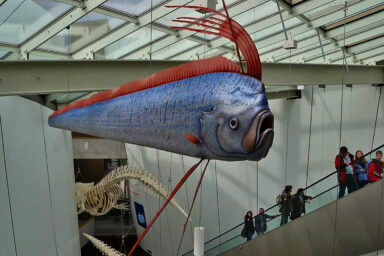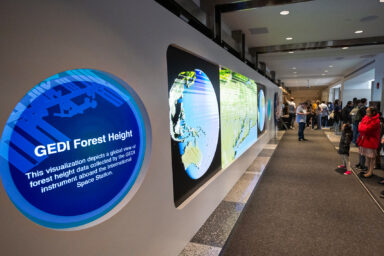Environmental Groups Sue FAA Over SpaceX Launch From Texas
|
Listen To This Story
|
PICKS are stories from many sources, selected by our editors or recommended by our readers because they are important, surprising, troubling, enlightening, inspiring, or amusing. They appear on our site and in our daily newsletter. Please send suggested articles, videos, podcasts, etc. to picks@whowhatwhy.org.
Environmental Groups Sue the FAA over SpaceX Launch from Texas (Maria)
The author writes, “Several environmental groups filed a lawsuit against the Federal Aviation Administration (FAA) on Monday, saying that the agency had not sufficiently regulated the launch of SpaceX’s Starship rocket from South Texas. In the lawsuit, filed in federal court in Washington, DC, the groups say that the FAA failed to account for the damage caused by testing and launching the Starship rocket, which results (sic) in ‘intense heat, noise, and light that adversely affects surrounding habitat areas and communities, which included designated critical habitat for federally protected species as well as National Wildlife Refuge and State Park lands.’”
Seattle to Settle Lawsuit by Employees Who Blew Whistle on Mayor’s Missing Texts (Reader Steve)
The author writes, “The city of Seattle has agreed to settle a lawsuit brought by employees who, with a whistleblower complaint in 2021, helped reveal that thousands of then-Mayor Jenny Durkan’s text messages had been deleted. Further scrutiny showed that texts of multiple other top officials were also not retained from early summer 2020, when police deployed tear gas against Black Lives Matter protest crowds and vacated the East Precinct.”
Bacow Defends Decision to Rename Harvard GSAS after Republican Megadonor Ken Griffin (Michaela)
From The Harvard Crimson: “Harvard University President Lawrence S. Bacow defended the decision to accept a $300 million donation from Republican Party megadonor Kenneth C. Griffin ’89 and rename the Graduate School of Arts and Sciences in his honor during an interview on Monday. Harvard affiliates criticized the University for accepting the unrestricted gift to the Faculty of Arts and Sciences, citing Griffin’s support of Republican political candidates and causes. Critics of the donation particularly slammed Griffin’s decision to back Florida Governor Ron DeSantis for president in 2024.”
Why Are So Many People Dying in Our Nation’s Jails? (Dana)
The author writes, “The torrent of headlines in recent months of deaths and suffering in our nation’s jails is unrelenting and unconscionable. … Through these headlines, the nation gets a glimpse of what I see regularly as an attorney with the American Civil Liberties Union (ACLU)’s National Prison Project: conditions in our nation’s jails and prisons that fall shockingly far from what the Constitution and basic human decency require.”
How Parenting Tech Opens the Door to State Surveillance (Reader Jim)
From Wired: “Today, state-of-the-art parenting technologies are frequently designed to monitor not only children, but those suspected of posing harm, making targets out of bystanders and importing state surveillance — inseparable, as Simone Browne has shown, from a history of racial formation and violence — to the home.”
How Do You Tackle Microplastics? Start with Your Washing Machine. (Sean)
The author writes, “The emerging science on microfibers — and microplastics in general — suggests they’re a gritty fact of modern life, but doesn’t yet show the magnitude of their harm to humans and other species. For the moment environmentalists, policymakers and manufacturers aren’t just debating whether to put filters on washing machines, but whether we know enough to act. In 20 years, when scientists know a lot more, it’ll be easier to judge whether today’s policies represented proactive leadership on an emerging environmental problem — or a soggy Band-Aid.”
A Genome Project Cracks Mysteries of Evolution — And Balto the Superdog (Michaela)
From The Washington Post: “An international collaboration called the Zoonomia Project analyzed the genomes of 240 mammals, offering insights into evolution, extinction, the human brain and a famous, life-saving sled dog. … ‘Many of the [key] differences are in genes that we know are important in building brains,’ said Steven Reilly, one of the authors of the study and an assistant professor of genetics at Yale University. ‘Many of these small changes help separate the human brain from that of our closest genetic match, the chimpanzee. … Some key deletions take place near genes that have been linked to distinctly human diseases, such as schizophrenia and bipolar disorder.’”




